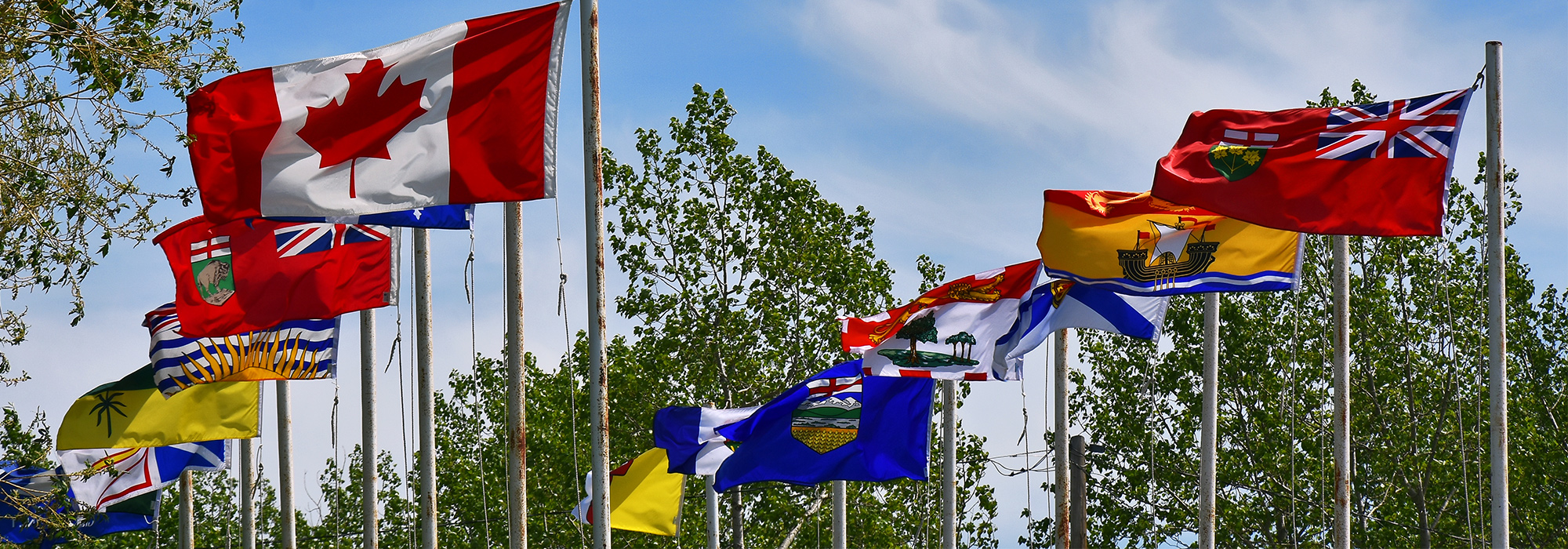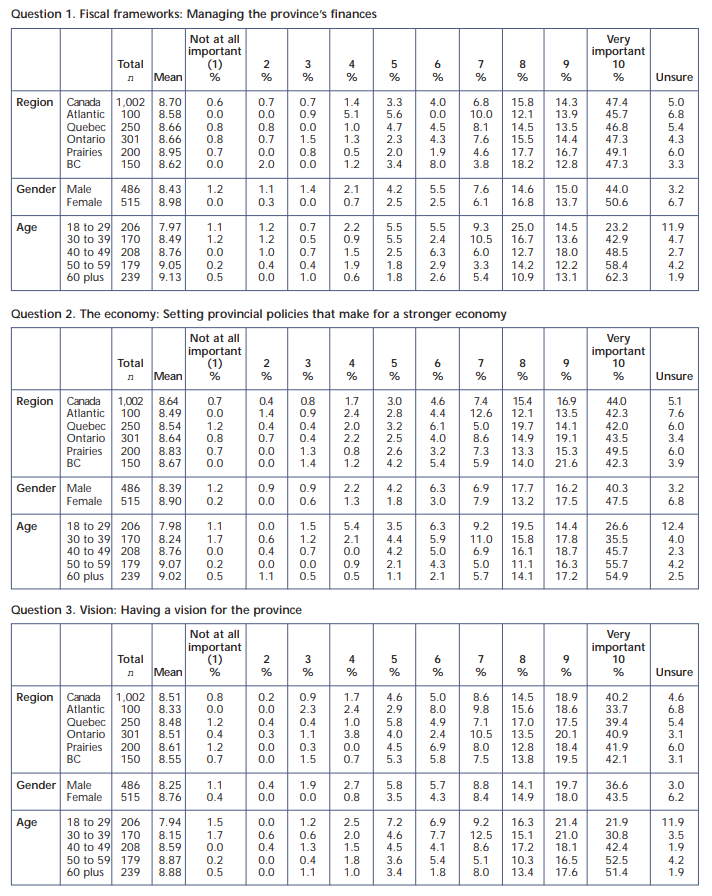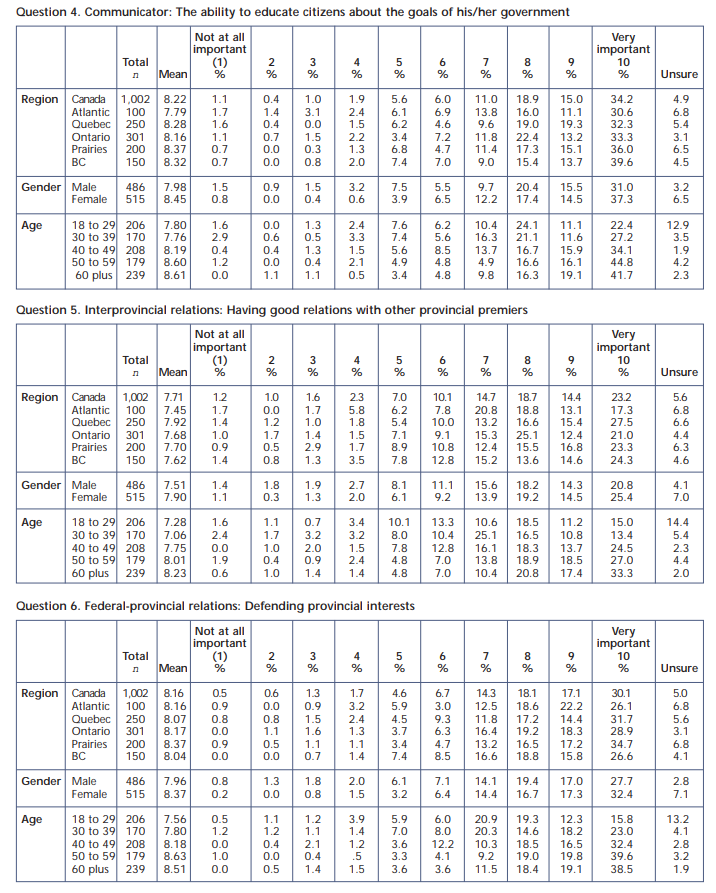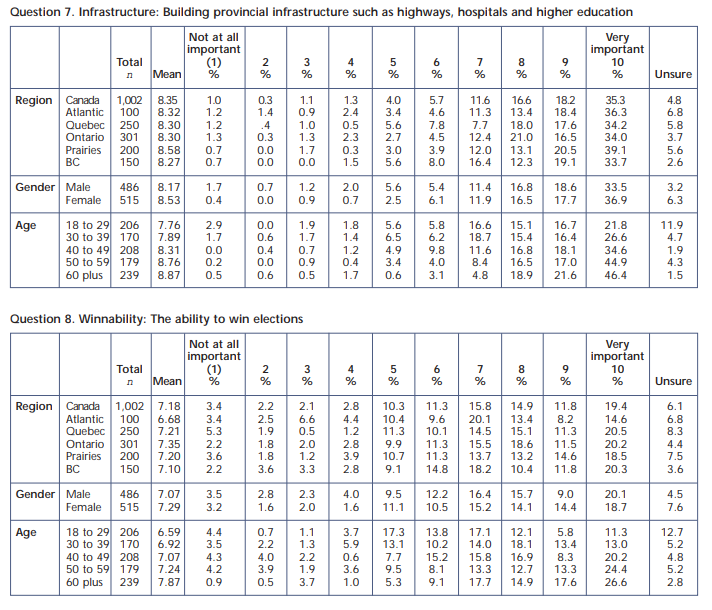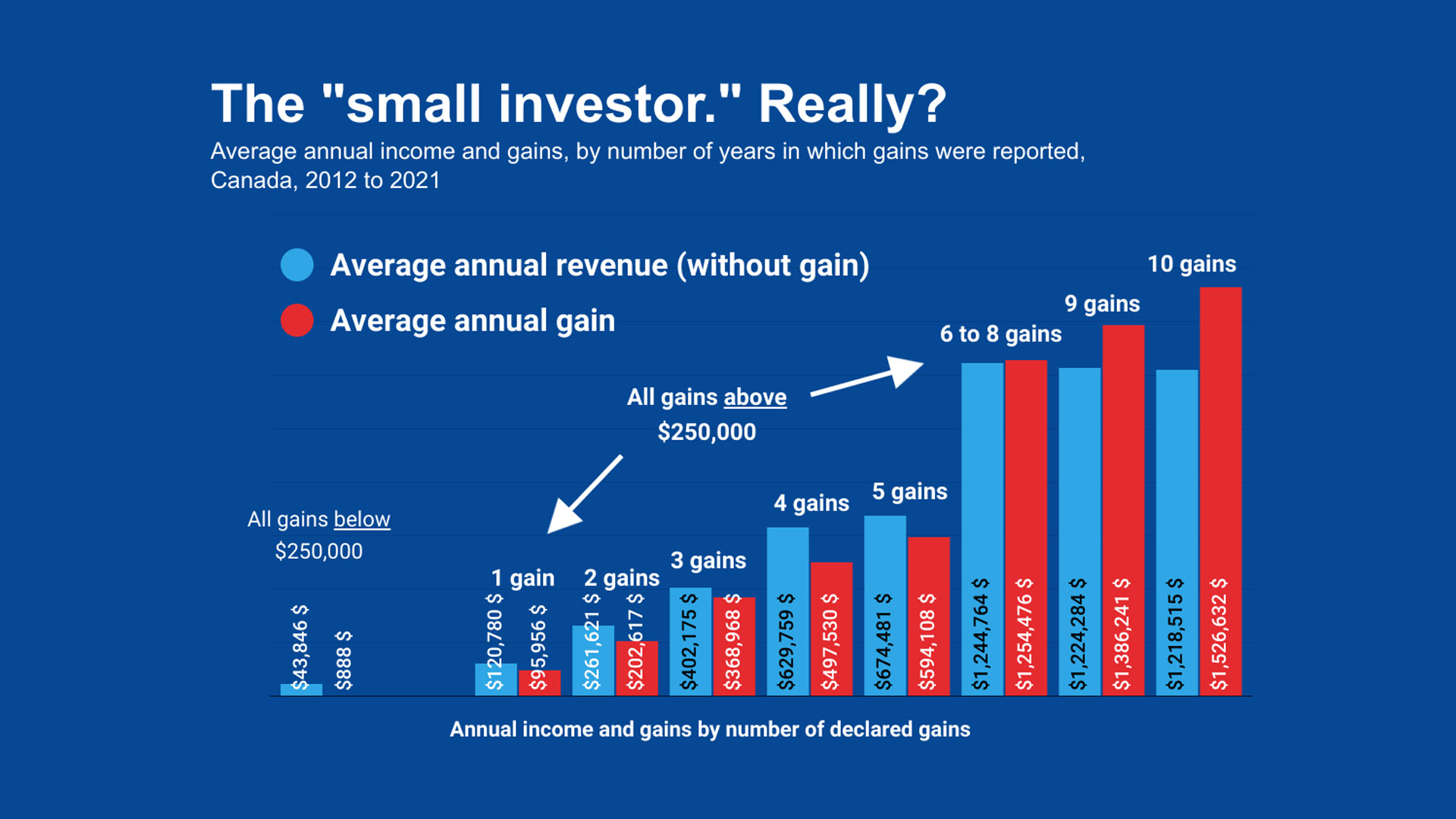
The questionnaire for this special issue of Policy Options, on the Best Premier of the Last 40 Years, was developed for a select jury of 30 prominent Canadians. But at Nanos Research, we decided to test eight of the nine questions with the public at large as to how they ranked the importance of the leadership attributes on a scale of 1 to 10.
The answers that came back were that it was about the money first, or rather how well their premier and their provincial government managed their money.
In our poll, “Fiscal frameworks: Managing the province’s finances” scored highest at 8.7 on a scale of 1 to 10 (question 1). Coming a close second, at 8.6 on a scale of 1 to 10 was “The economy: Setting provincial policies that make for a stronger economy” (question 2).
And the older Canadians get, the more important the management of their money becomes. Among Canadians over the age of 60, 62 percent of our respondents ranked the importance of managing fiscal frameworks at 10 on a scale of 10. In our research, that’s not the kind of number we see very often. But clearly for older voters it’s about being a good manager and not wasting money.
The Nanos poll was a random online survey of 1,002 Canadians aged 18 and over, conducted April 13-14, 2012.
When Canadians think of their provincial premier, they think: “what can he do for me, what has he done for me, and can he take the province in the right direction?”
There are, however, some variations around gender and geography.
For example, women put a higher premium on vision and the capacity to communicate. And that’s because typically women tend to be more interested in the longer term than men. For women, it’s not just about today, it’s also about the future.
On the question of having a vision for the province, which scored 8.5 on a scale of 10, men ranked it at 8.25, while women scored it at 8.76 (question 3). On the question of being a strong communicator, “the ability to educate citizens about the goals of his/her government,” it tested at 7.9 among men, but at 8.45 among women, for a cumulative score of 8.2 on a scale of 10 (question 4).
A regional variation could be seen in the importance Quebecers attached to interprovincial relations, which ranked at 7.7 on a scale of 10 nationally, but at 7.92 in Quebec, highest in the country, compared to 7.45 for the Atlantic, 7.68 for Ontario, 7.70 on the Prairies and 7.62 in British Columbia (question 5).
As for federal-provincial relations, and defending provincial interests in the federation, it scored 8.1 on a scale of 10 (question 6).
A large part of any premier’s job is the building and maintaining of infrastructure such as highways, schools and universities, and health care facilities. Not surprisingly, Canadians in all regions saw this as important, ranking it at 8.3 on a scale of 10 (question 7).
The least important leadership attribute in the minds of Canadians was winnability — the ability to win elections, which scored only 7.1 on a scale of 10 (question 8).
All in all, looking at this poll, it’s clear that for most Canadians, their provincial premier plays a pivotal role in their lives.
Photo: Shutterstock




